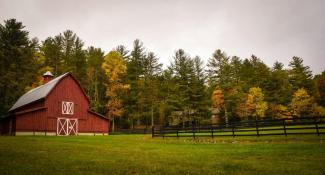
A Virginia Tax Credit Program You Should Know About
I don’t know about you, but I like the conservation of green things.
The two things that come to mind first when thinking of that topic are land and money.
Thankfully, in the Commonwealth of Virginia, we have a wonderful program which helps us accomplish both!
I’m referring to the Land Preservation Tax Credit program.
The purpose of this initiative is to preserve forest and agricultural land by keeping it from being further developed.
This is accomplished by having the land owner put an easement on the land which prohibits it from being developed in perpetuity. The easement is a permanent fixture on the deed and cannot be removed by future owners.
Obviously, this change greatly decreases the market value of the associated land.
In order to encourage this conservation, the Commonwealth of Virginia provides the land owner with a state tax credit for the equivalent of the drop in market value.
While the landowner can take advantage of this credit on their personal taxes, the size of the credit can often be much larger than their typical state tax obligation.
This is where you and I, ordinary taxpayers uninvolved with the easement, come into the picture.
When a land owner realizes they may not be able to use all of their state tax credits in a reasonable amount of time, they are permitted to sell portions of their credits to other state taxpayers.
In order to sell their unused credits, the land owners will often offer them at a discount, such as 10%. This process is facilitated by an attorney or broker who handles the paperwork.
Let’s tell a short story to provide an example.
Imagine Steve owns a large family farm that has been passed down to him through several generations. While Steve and his descendants do not have a desire to continue operating the farm, they don’t want to see it developed as the neighboring town expands.
Steve consulted with his advisors and decided to put an easement on several hundred acres of the property to work toward this goal.
Before the easement, the tract was valued at $3 million. Once the limitations are in place, it is appraised for $1.5 million.
For his efforts, Steve is given $1.5 million in state tax credits from Virginia. However, his state tax obligation is usually around $20,000. Steve is in his mid-60s and knows he will never fully realize the benefit of this credit on his own.
This being the case, he gets the assistance of a local broker to sell the credits to the general public.
Amy and Jeff live in a town not too far from Steve. Amy is the Vice President of a local shipping company and Jeff is a cardiac surgeon. Their income has been increasing rapidly and this year they expect to pay $50,000 in state income taxes.
Their advisor suggested they purchase Land Preservation Tax Credits. They purchase them from Steve’s broker at a 10% discount.
To accomplish this they pay the broker $45,000 in November and receive a certificate in February from the state for $50,000 of credits, transferred from Steve.
The result of this exchange is Amy and Jeff save $5,000 on their Virginia income taxes while Steve realizes $45,000 of benefit he likely would have not received during his lifetime.
There are a few other aspects of this program to keep in mind.
The first is the maximum amount of credits you can buy. This is limited to $50,000 per tax ID (up from $20,000 before 2023).
Businesses also qualify to purchase these credits since they have their own tax ID.
Be sure to consult with your financial advisor and CPA before making the decision to purchase Land Preservation Credits. Also, check you are buying the credits from a reputable broker who ensures the paperwork is in good order on both ends of the deal.
This is a hypothetical example and is not representative of any specific investment.

